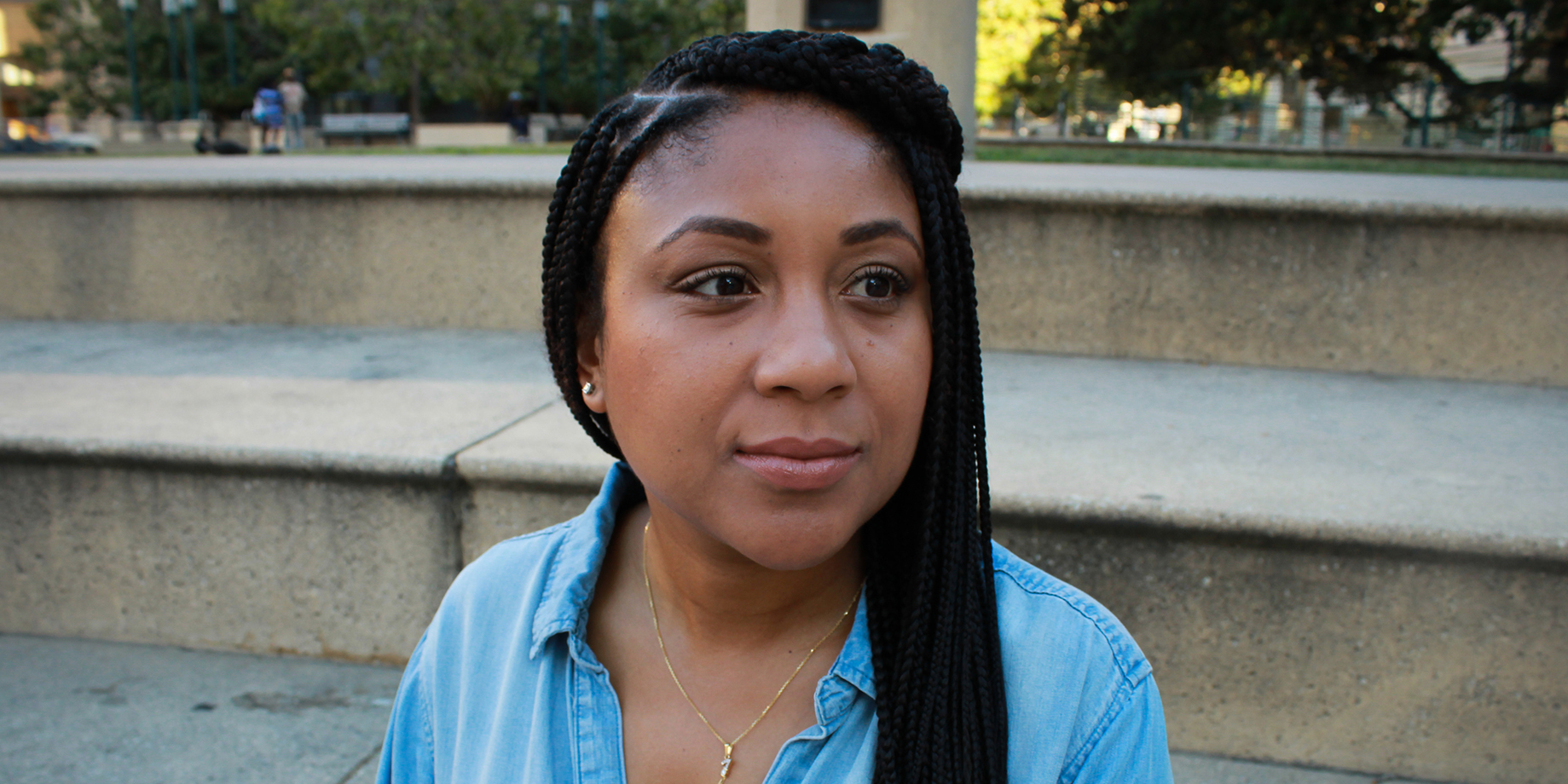Reina Robinson
Cultivator for Urban Excellence
BA '16, Ethnic Studies & MA '19, Communication

Reina Robinson ('16, Ethnic Studies; '19, Communications) is a Youth Development Services Specialist for the Contra Costa County Office of Education.
While she was studying for her masters at Cal State East Bay, she founded the Center For Urban Excellence, a nonprofit organization that supports youth affected by incarceration and violence. Through the Center for Urban Excellence, she provides supportive services, trainings, event coordination and creates a youth-focused curriculum for Bay Area youth.
"The students that I serve feel like family," said Robinson. "I am a child of teen parents and my father was murdered when I was just three years old. I’m from and have lived in many underprivileged communities where little to no economic or social opportunities are available. Education has afforded me new experiences and provided many opportunities to connect with people I thought I would only read about."
Q&A with Reina
Why did you decide to attend Cal State East Bay?
I decided to attend East Bay after completing my general education at a local community college. As a working adult, I knew I was interested in a CSU for affordability and East Bay was the most convenient. Living in Vallejo, CA and commuting around the Bay Area and Silicon Valley for work made CSU East Bay an easy commute for night classes. Once I visited the campus and experienced the views, I realized that Cal State East Bay is the heart of the Bay Area. Who wouldn't want to be a part of that?How has your education here at East Bay helped you with your endeavors?
Earning both a bachelor's and a master’s from Cal State East Bay has not only helped my professional life but has also afforded me academic and business opportunities with people that I would have not come in contact with otherwise. As a graduate student, I was a teacher's assistant for two of Dr. Nolan Higdon’s courses providing me with post-secondary teaching experience. Since finishing my master’s, I’ve guest lectured and have been speaking on panels regarding justice-involved youth.Also while at Cal State East Bay I founded the Center For Urban Excellence, a nonprofit organization that supports youth affected by incarceration and violence. Through the Center for Urban Excellence, I provide supportive services, trainings, event coordination and create a youth-focused curriculum for Bay Area youth. For my master's special project the Center for Urban Excellence hosted a digital and social media literacy convention. The convention allowed me to collaborate with many of my classmates. This project made the hard work feel a lot less like school and more like a positive contribution to our community. Nearly every one of my Communication cohort members participated in the convention including Nina Woodruff-Walker the CEO of Museum of Children's Arts (MOCHA) in Oakland, CA who hosted the event, panel facilitators Monika Brooks and Jazmin Marquez, panelist Chance Moses and community participants Emily Arevalo, Roy Tillery, and Andrea Cervantes. You all are very appreciated.
Did you face any challenges at Cal State East Bay? If so, how did you handle them?
Tell us about your career journey and your current job.
Before earning my bachelor's degree in Ethnic Studies at Cal State East Bay, I was in the gig economy working as a Google Market Manager through a third party company. When I graduated with a BA in 2016 I was fortunate to find a position with Contra Costa County Office of Education working with justice-involved youth. Working with these youth has changed my life. I would not have qualified for this position without a bachelor's degree. I found the job by Googling keywords for my “dream job” which were justice-involved youth, career guidance and education.
The students that I serve feel like family. I am a child of teen parents and my father was murdered when I was just three years old. I’m from and have lived in many underprivileged communities where little to no economic or social opportunities are available. Education has afforded me new experiences and provided many opportunities to connect with people I thought I would only read about. I’m privileged to be able to share everything I’m learning with my youth because hope creates resilience.